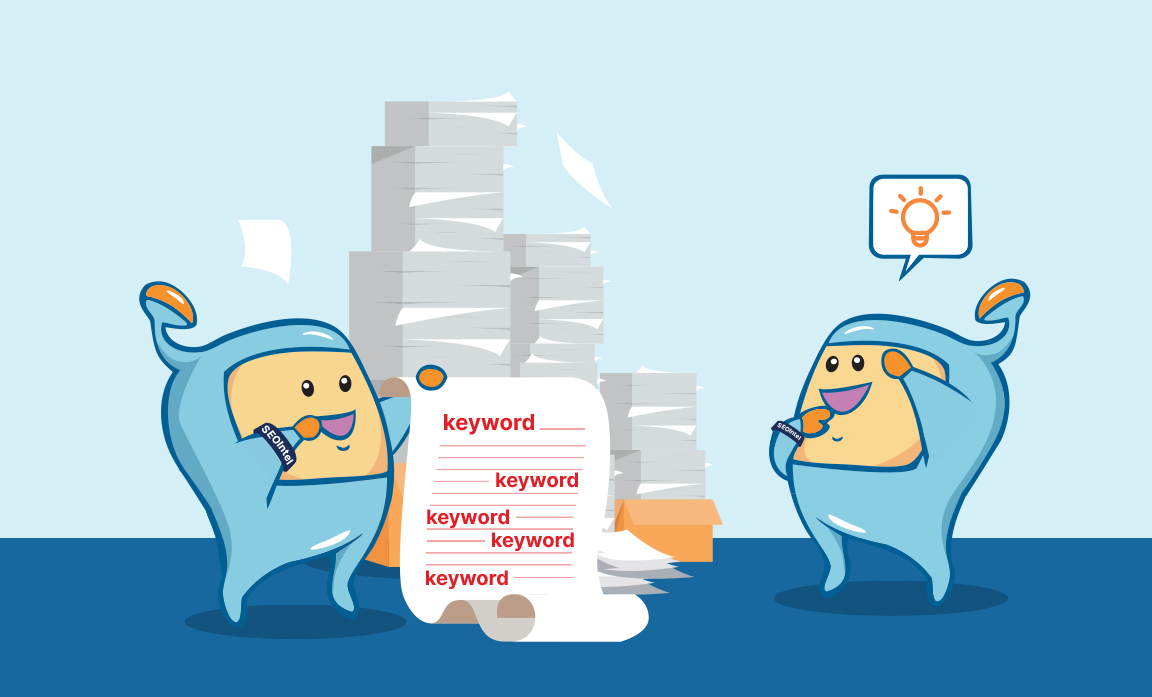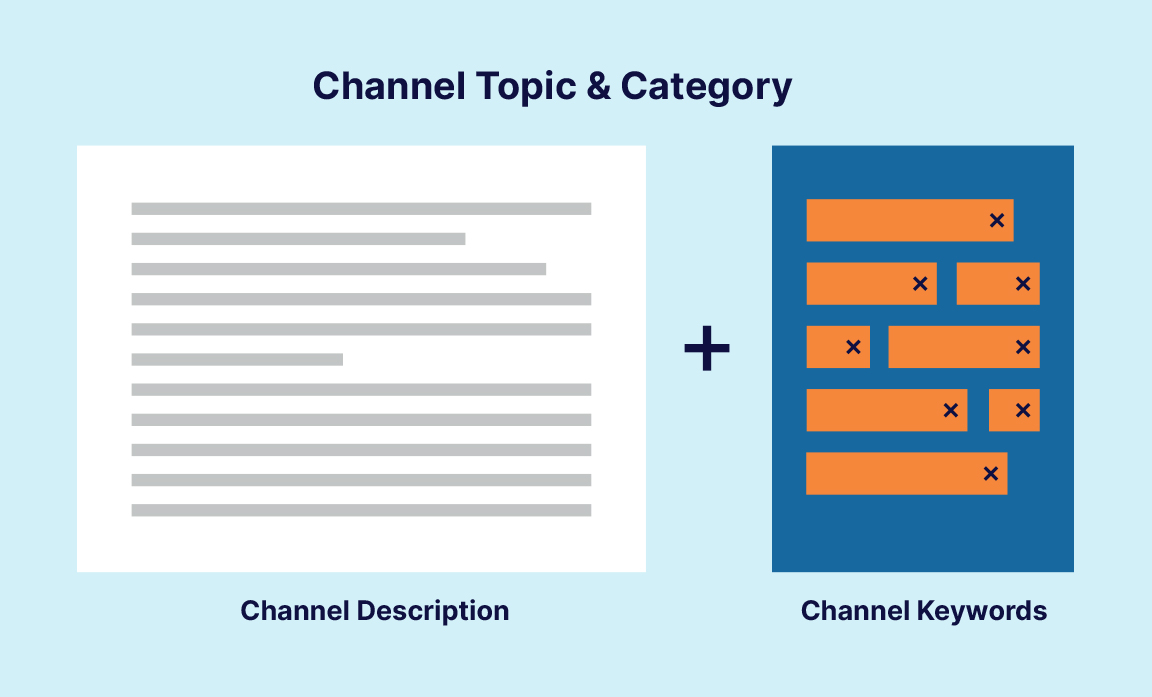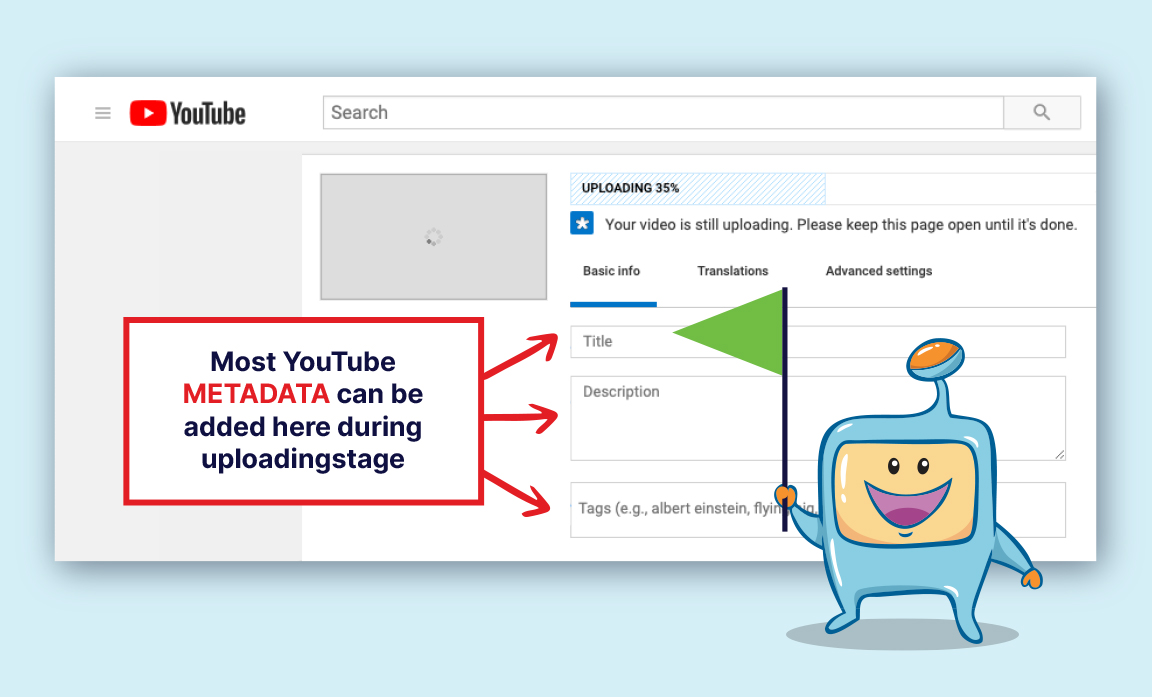In the vast landscape of YouTube, where millions of channels compete for attention, optimizing your channel's visibility and attracting the right audience is crucial.
One powerful tool at your disposal is channel keywords.
By strategically selecting and implementing relevant keywords, you can enhance your channel's discoverability, strengthen your brand identity, and amplify your search rankings and recommendations.
In this article, we will delve into the significance of channel keywords and provide actionable strategies to help you unlock the true potential of your YouTube channel.

Here is what you will read in this article:

Channel keywords play a crucial role in optimizing a YouTube channel for increased visibility, discoverability, and growth.
By understanding the power of channel keywords, creators can strategically leverage them to attract their target audience, strengthen their brand identity, and maximize their search rankings and recommendations on the platform.

Channel keywords are a fundamental element of YouTube channel optimization.
They are specific words or phrases that encapsulate the core themes, topics, and content focus of a YouTube channel.
These keywords provide crucial context to YouTube's algorithm, aiding in the categorization and understanding of the channel's content.
When users search for related topics, channels with well-optimized keywords have a higher chance of appearing in search results and recommendations.
Channel keywords hold significant power when it comes to maximizing the discoverability and visibility of a YouTube channel.
By strategically selecting and implementing relevant keywords, creators can attract their target audience and increase their channel's exposure.
When users search for content related to the channel's niche, YouTube's algorithm considers the channel keywords as a crucial factor in determining its relevance and ranking in search results.
Well-optimized keywords can significantly improve the chances of a channel appearing in the top search results, leading to increased visibility and organic traffic.
Effective channel keyword optimization allows creators to attract the right audience for their content.
By choosing keywords that accurately represent the channel's themes and content, creators can align their channel with the interests and preferences of their target audience.
This targeting ensures that the channel attracts viewers who are more likely to engage with the content, subscribe to the channel, and become loyal followers.
By understanding the search intent behind the keywords, creators can optimize their content to meet the specific needs and expectations of their audience, fostering a stronger connection and increasing engagement metrics.
Channel keywords play a significant role in establishing and reinforcing a channel's brand identity.
Consistent and strategic use of keywords across the channel's description, video titles, tags, and metadata helps create a cohesive brand presence.
When viewers encounter a channel that consistently delivers content aligned with their interests and expectations, they are more likely to develop a sense of trust and loyalty towards the brand.
Channel keywords contribute to shaping the perception of the channel and its content, helping creators establish a distinct identity in a competitive YouTube landscape.
Well-optimized channel keywords can significantly impact a channel's search rankings and recommendations.
When YouTube's algorithm recognizes the relevance and quality of a channel's content based on the keywords, it rewards the channel with higher rankings in search results and increased visibility in recommendations.
This increased exposure translates to more organic traffic and potential growth opportunities for the channel.
By consistently optimizing channel keywords and delivering valuable content, creators can leverage YouTube's algorithm to gain more visibility and reach a wider audience.
The power of channel keywords extends beyond mere discoverability.
Optimizing keywords can lead to substantial channel growth and open doors to monetization opportunities.
As a channel attracts a more targeted and engaged audience, it increases the likelihood of gaining subscribers, generating higher view counts, and ultimately monetizing the channel through advertisements, sponsorships, merchandise sales, and other revenue streams.
Well-optimized channel keywords provide a strong foundation for long-term channel growth and success on YouTube.
Optimizing channel keywords is a crucial aspect of maximizing the visibility and growth potential of a YouTube channel.
By implementing effective strategies for channel keyword optimization, creators can ensure that their content reaches the right audience, improves search rankings, and strengthens their overall YouTube presence.
Here are key strategies to consider:
Keyword research and selection are foundational steps in optimizing your channel keywords for maximum visibility and attracting the right audience.
By conducting thorough keyword research and selecting the most relevant and high-traffic keywords, you can significantly improve the chances of your channel being discovered by users searching for content in your niche.
Here are key strategies to consider:
1. Comprehensive Keyword Research
To begin your keyword research, utilize various keyword research tools such as Google Keyword Planner, YouTube's autocomplete feature, and third-party tools like Ahrefs Keywords Explorer or SEMrush.
These tools provide valuable insights into popular search terms related to your channel's niche.
Start by brainstorming core themes and topics that align with your channel's content.
Enter these ideas into the keyword research tools and explore the suggested keywords.
Look for keywords with a significant search volume that indicates high user interest.
Additionally, pay attention to the competition level associated with each keyword.
High-competition keywords may be challenging to rank for, especially if your channel is relatively new or less established.
Consider selecting a mix of high-traffic, moderate-competition keywords, and long-tail keywords that are more specific to capture a targeted audience.
2. Relevance and Long-Tail Keywords
While it's important to target keywords with high search volume, relevance is equally crucial.
Choose keywords that accurately represent your channel's content, themes, and target audience's interests.
Opt for keywords that align with your unique value proposition and differentiate your channel from competitors.
Long-tail keywords, which are longer and more specific phrases, can be particularly effective.
These keywords often have lower competition and attract a more targeted audience.
For example, instead of targeting the broad keyword "cooking," consider using long-tail keywords like "easy vegetarian recipes for beginners" or "quick and healthy meal prep ideas."

Long-tail keywords allow you to tap into a specific audience segment and increase the chances of ranking higher in relevant search queries.
Remember to strike a balance between search volume, relevance, and competition when selecting keywords.
A combination of broader and more specific keywords will help you reach a wider audience while attracting users who are genuinely interested in your content.
Once you have conducted thorough keyword research and selected the most relevant keywords for your channel, it's time to strategically implement them across various elements of your YouTube channel.
Effective implementation of channel keywords will help optimize your channel's visibility, improve search rankings, and attract the right audience.
Here are key tactics to consider:
1. Channel Description
Craft a compelling and informative channel description that incorporates your chosen keywords naturally.
The channel description is an opportunity to provide an overview of your channel's content, themes, and value proposition.
Aim to create a concise and engaging description that accurately reflects your channel's focus while incorporating relevant keywords.
However, avoid keyword stuffing, which can make the description appear unnatural and negatively impact the user experience.
2. Video Titles and Tags
Integrate your channel keywords into your video titles and tags.
Video titles play a crucial role in attracting viewers and conveying the content of your videos.
Incorporate relevant keywords into your titles while maintaining clarity and enticing viewers to click and watch.
Additionally, utilize tags that align with your channel keywords to help YouTube's algorithm understand the context and relevance of your videos.
Be strategic with your tags and include both broad and specific keywords to cover different aspects of your content.
3. Playlists and Sections
Organize your channel using playlists and sections that align with your channel keywords.
Playlists provide a structured way to group related videos, making it easier for viewers to navigate your content.
Optimize your playlist titles and descriptions by incorporating keywords that accurately describe the content within each playlist.
Similarly, use sections on your channel homepage to highlight specific themes or series of videos.
Ensure that your section titles are keyword-rich and compelling to attract viewers' attention.
4. Channel Metadata and Settings

Optimize your channel's metadata and settings by incorporating keywords strategically.
This includes fields such as the channel name, custom URL, associated website, and social media profiles.
Ensure that your channel name reflects your content and includes relevant keywords if possible.
Customize your channel URL to make it more memorable and aligned with your brand or channel keywords.
Additionally, include your keywords in your associated website's meta tags and descriptions, further reinforcing the keyword association and improving discoverability.
5. Regular Review and Updates
Regularly reviewing and updating your channel keywords is essential for maintaining optimal performance and staying ahead of the competition.
Keyword trends, user preferences, and industry dynamics can change over time, so it's crucial to keep your channel keyword strategy up to date.
Here's why regular review and updates are important:
By regularly reviewing your channel keywords, you can ensure that they remain relevant to your content and audience's interests.
As your channel evolves and new trends emerge, it's important to align your keywords with the current landscape.
Stay updated on industry news, monitor keyword performance, and adjust your strategy accordingly to maintain relevance.
Keyword trends can shift over time, and what may have been popular previously may lose its relevance.
By regularly reviewing your channel keywords, you can identify emerging trends and capitalize on them.
This allows you to adapt your content strategy and attract viewers who are searching for the latest topics and keywords.
The digital landscape is dynamic, and new opportunities can arise at any time.
By conducting regular keyword reviews, you can identify untapped keywords or emerging niches that align with your channel's content.
By optimizing your channel for these new opportunities, you can expand your reach, attract a broader audience, and potentially gain a competitive edge.

Regularly reviewing your channel keywords allows you to track their performance and make data-driven decisions.
Use analytics tools to analyze keyword rankings, search volumes, click-through rates, and audience engagement.
Identify keywords that are driving significant traffic, conversions, and engagement, and double down on them.
Similarly, if certain keywords are underperforming, consider refining your strategy or replacing them with more effective alternatives.
To illustrate the impact of regular review and updates, let's consider a case study:
Case Study: The Cooking Channel
The Cooking Channel is a YouTube channel dedicated to sharing delicious recipes and cooking tips.
Initially, their channel keywords focused on general terms like "cooking," "recipes," and "food."
However, after conducting a regular review, they noticed a rising trend in plant-based diets and vegan cooking.
By updating their channel keywords to include terms like "plant-based recipes," "vegan cooking," and "healthy plant-based meals," they tapped into a growing audience searching for these topics.
As a result, their videos began to rank higher in search results and gained more visibility.
Regularly monitoring their keyword performance allowed The Cooking Channel to stay ahead of the curve, align their content with current trends, and attract a dedicated audience interested in plant-based cooking.
This strategic approach led to increased subscriber growth, higher engagement rates, and more monetization opportunities.
In conclusion, optimizing your channel keywords is a crucial aspect of YouTube channel growth and success.
By conducting thorough keyword research, selecting relevant keywords, and strategically implementing them across your channel, you can enhance your visibility, attract the right audience, and improve search rankings.
Regularly reviewing and updating your channel keywords ensures that your content remains relevant, adapts to changing trends, and capitalizes on new opportunities.
It's essential to monitor keyword performance, analyze data, and make data-driven decisions to optimize your channel's keyword strategy continually.
Remember, channel keyword optimization is an ongoing process that requires consistent effort and adaptation.
By striking a balance between optimization and providing valuable content, you can create a compelling user experience that keeps viewers engaged and coming back for more.
Stay proactive, stay updated with industry trends, and be open to experimenting with new keywords.
With a well-optimized channel and a keen eye on keyword optimization, you can unlock the full potential of your YouTube channel and pave the way for long-term growth and success.